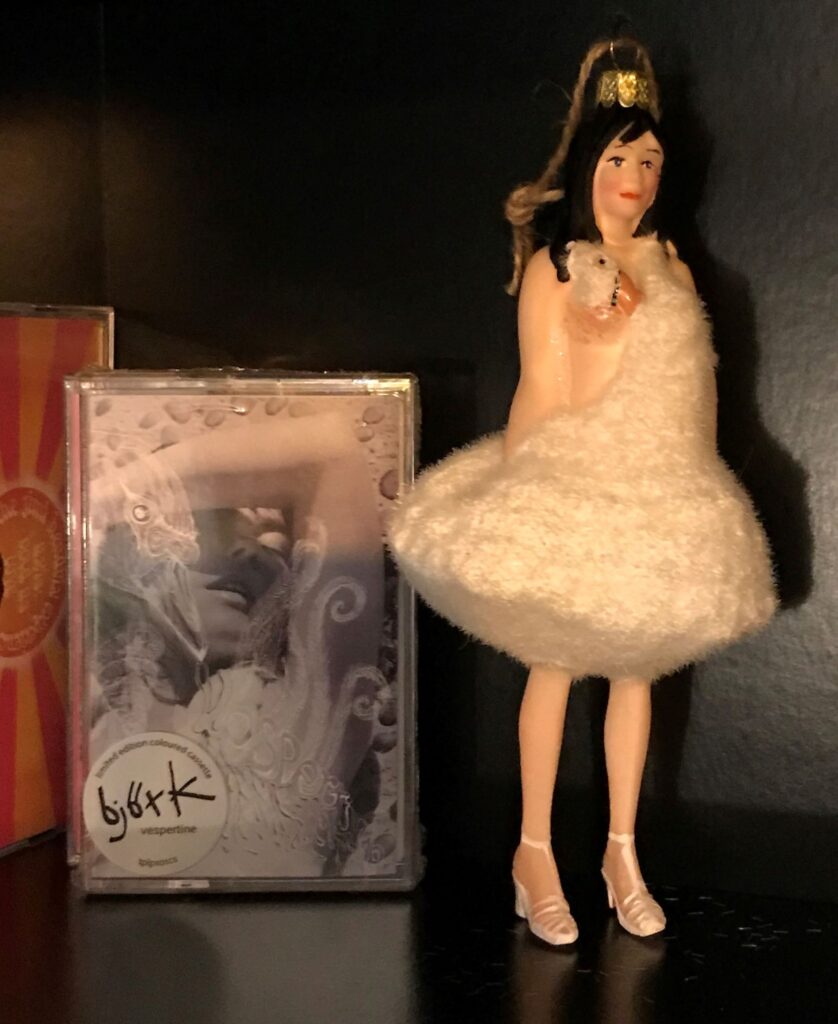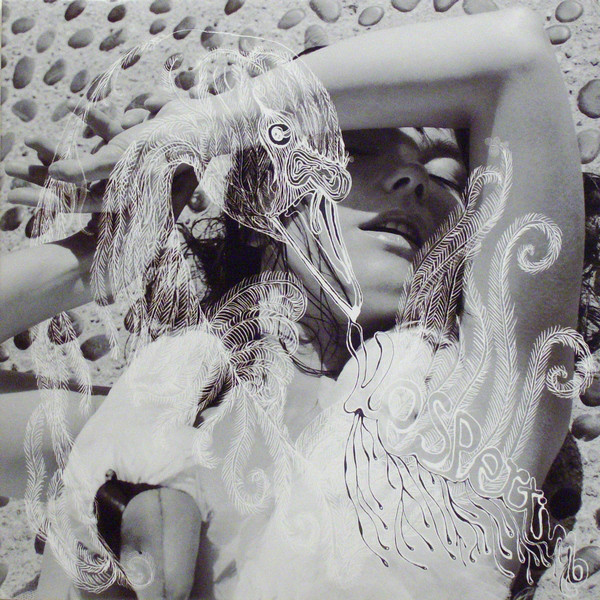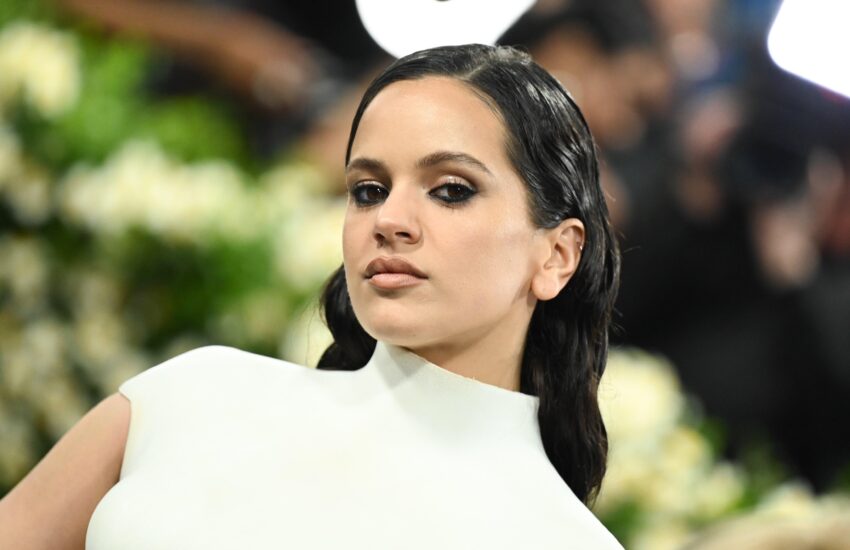VINYLLY! :: Part One
During the last week of 2020, the news coverage was violently choppy with wave after wave of last-minute catastrophes to close the year on, offering no respite from one of the most emotionally beleaguered winter holidays of recent memory. Between the discovery of a new strain of Coronavirus and the subsequent restrictions put in place after record-breaking rises in cases and deaths, along with the final flourish of misguided nationalism coming to fruition in the United Kingdom’s post-Brexit deal with the European Union, the dull ache of end-times ennui was laid unbearably thick. It was a sentiment echoed in a lot of year-in-review pieces, each one radiating with the same sense of disgruntled submission and foreboding of the days passed and those yet to come, wary of even showing the faintest glimmer of hope for fear of jinxing what potential recovery from The Year That-Most-Certainly-Effing-Wasn’t may lay ahead. And yet there was one sliver of good news that managed to catch my eye amidst this deluge of doomy dissonance.
One specific part of the music market that did not appear to suffer from all this malarkey was the sale of vinyl albums, a format that has been enjoying a spirited renaissance since the inception of Record Store Day in 2007 and in 2020 accounted for nearly five million units sold in the UK alone. It has gained such momentum now that even I have endeavoured to begin collecting vinyl recordings of some of my favourite long-players, as I had previously mentioned in my own “Year End-trospective” last month; thirteen years is a long game to play, but it took that much time to let the gorgeous format of vinyl sink its teeth into my psyche, and what with the whole not-going-out-at-the-weekend-because-global-pandemic factor still being a thing, it certainly does not appear to be letting go anytime soon. So, in the name “content”, I have decided to begin recording a log of all my purchases thus far, being the good little first-world-capitalist-pleb that I am.
Theydies and gentlethems, here is the first entry in a series I am deigning to call…
VINYLLY!
#1: VESPERTINE – Björk (2001, Björk Overseas/One Little Independent, TPLP101)
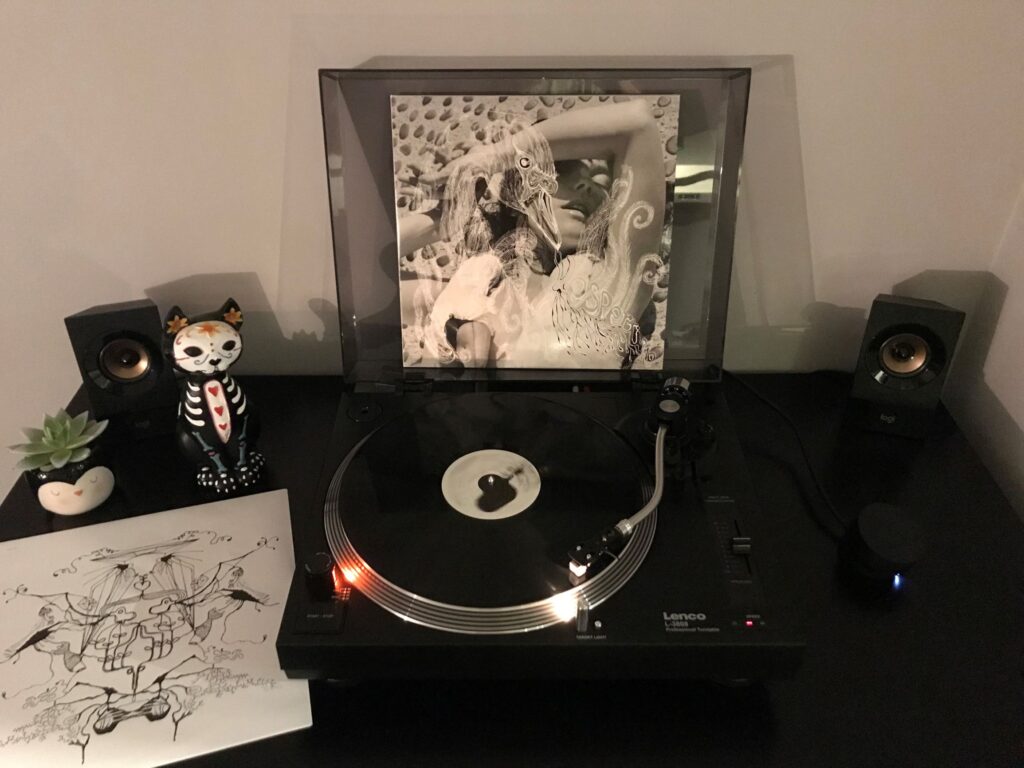
On course to celebrate its twentieth anniversary this coming August, Björk’s fourth English language solo album will likely be rediscovered and appraised by many pop-nerds this year and rightly so, being the artifact of sonic beauty that it is. Expertly balancing chamber pop with state-of-the-art electronica to chart a truly swoonsome tour through its progenitor’s innermost desires, Vespertine’s charms still sound as ornately lovely and galvanising as they did twenty years ago. Björk’s enmeshing of classical orchestral grandeur with microbeat signatures and warm bass synths more reminiscent of minimalist techno provided an evocation of love that simultaneously felt bracingly modern and timelessly romantic. And yet, all that most people remember from this era of Björk’s career is that dress she wore to the Oscars.
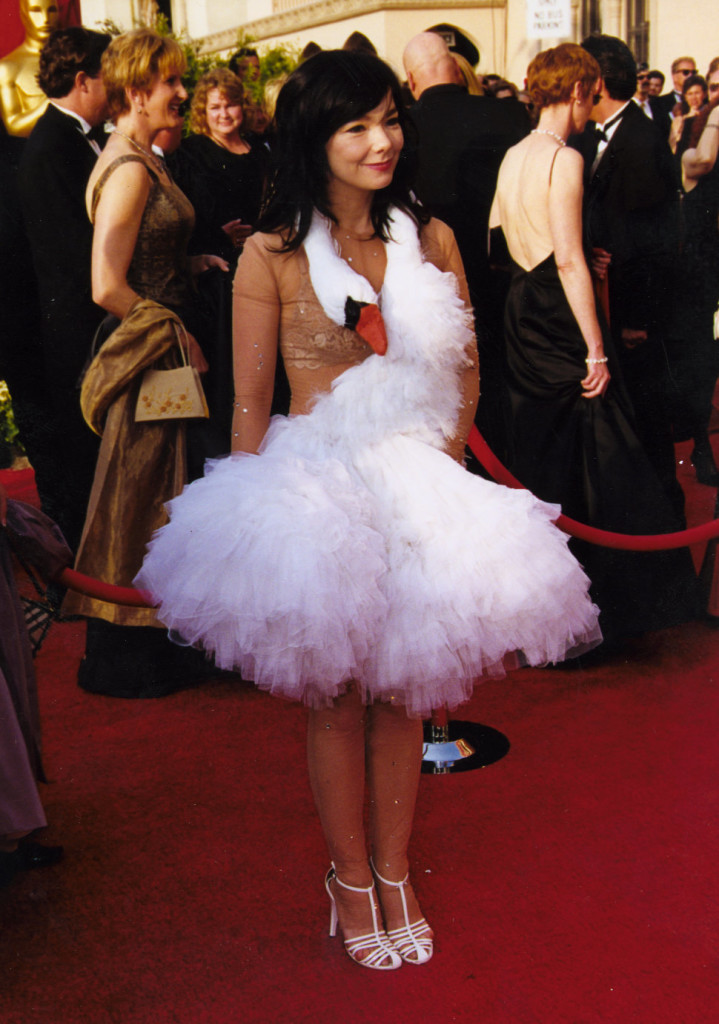
Of course, the reason that Bjork was invited to attend the Oscars in the first place was because she was nominated for composing the song “I’ve Seen It All” for the post-modern musical melodrama Dancer In The Dark. A throwback to golden-era Hollywood musicals directed by everyone’s least-favourite-pervy-uncle Lars von Trier, critics both lauded and derided the film for its crudely cynical sentimentality in equal measure, though praise for Björk’s lead performance and song score was unanimous on release. Plenty of publicity had followed this film to the Oscars beforehand anyway after details of the film’s troubled shoot leaked to the press before its premiere at the Cannes Film Festival in 2000, where much was made about Trier and Björk’s clashes on-set, creating an atmosphere that had become so volatile that she had compared it to serving in the Vietnam war in interviews.
Playing one of Trier’s typically martyred heroines would have taken its toll on any actress anyway (especially if you consider Björk’s sexual harassment allegations that surfaced a few years ago), so much discussion from her fans was had about where all this trauma would factor into Björk’s subsequent solo work. Truth be told though, Vespertine’s course had been charted as early as the sessions for her previous album, 1997’s Homogenic, with Björk herself opining later how that album’s closing track, the shimmeringly ambient Howie B mix of “All Is Full Of Love”, was essentially the first track of Vespertine, handily establishing a through-line between albums three and four that conveniently sidesteps her still-wonderful contributions to Dancer In The Dark. This is given more credence once you factor in Chris Cunningham’s awe-inspiring video clip for the song, which utilises an alternate audio mix that provides a better match for Vespertine’s poignant-yet-chilling stylistic ethos than the album version.
The opening track and lead single “Hidden Place” couldn’t pitch what follows more perfectly to the listener, a hushed-yet-excitable reverie that acutely pinpoints the protagonists’ burgeoning romantic obsession with wit and candour, aided by a stunning choral arrangement that rises and falls with a sensuality that registers as both playful and dangerous. Things get more explicit with the following track, third single “Cocoon”, which is essentially the closest Bjork has yet come to creating a sexy slow-jam in her work, the microbeats here registering little more than static clicks providing the faintest of frameworks while a warm synth guides her fragile voice in describing a particularly intense sexual encounter. Another special mention should go to the second single “Pagan Poetry”, which closes out the album’s first half with a full-throated admission of wanton desire that climaxes halfway through to give way to an unsettling admission of devotion delivered with such naked emotion that it makes you feel indecent for listening to it. This startling intimacy is what characterises Vespertine apart from the rest of Björk’s discography and is most likely the main reason why many of her fans often proclaim it as their favourite of her solo works, its author displaying a carnality so fearlessly and honestly rendered that it manages to find a universal core relating to the true nature of love.
Darker tangents of sensuality pervade thereafter on the album’s second half, particularly on three tracks wherein Björk incorporates lyrics from outside sources. The sinister “An Echo A Stain” finds her alternating between different characters from playwright Sarah Kane’s Crave in a scene that appears to infer the physical and emotional fallout of sexual violence with appropriately dread-filled choral drones and Bernard Herrmann-esque string sections, whilst the stunning penultimate track “Harm Of Will” sees Björk construct the most beautiful orchestral arrangement of her career to accompany a passionless excursion committed by a sleazy narrator as written by American filmmaker and contemporary of Lars von Trier, Harmony Korine. Completing the trilogy is a song inspired by the poetry of E.E. Cummings, “Sun In My Mouth” which is comparatively less harrowing but still full of lovelorn yearning as its subject navigates the “sleeping curves” of their body in sensuous frustration over a love not yet found.
Which isn’t to say that Vespertine is solely concerned with the idea of a specific mode of human connection throughout though. The album’s lighter songs concerning platonic and familial relationships offer some of the brightest moments of Björk’s oeuvre, key highlights being the beatific “It’s Not Up To You”, a winsome deliberation over the energies we pour into our relationships with others, and the finale “Unison”, which begins in a mode of frosty self-deprecation only to gradually thaw with humour and poignancy as Björk finally admits to the object of her ire that “I can’t do this without you”, the underpinning electronic pulses growing more vibrantly percolative as the choirs and orchestra swell to an almost heavenly grandeur. And throughout the entire work, that idiosyncratic voice of hers never falters, still possessed of the elemental fierceness that turned people’s heads when she Debut-ed in 1993 but now bestowed of a regal command that truly soars with power and grace.
Nominated for the Grammy for Best Alternative Album (which she lost to Coldplay… because sure), Vespertine received an ecstatic reception from music critics the world over, with a lot of publications favourably comparing it to Radiohead’s KID A from the previous year at the time, the latter a more enervated yang to the former’s statelier, more literate yin as they both used cutting-edge electronic music to create new sounds and moods not yet heard in popular alternative music. Both albums connect thematically through their trying to find affirmation in an alienating age of post-millennial technology and sarcastic irony, but where Radiohead wallowed in their neuroses with characteristic agitation and lament (brilliantly though, as ever), Björk managed to carve a niche where electronic music could become the bedrock for a new generation of romantics and poets, opening up avenues for contemporary classical composers and homebound electronic producers alike to create a truly wondrous piece of work. Whenever I’m asked what my favourite album ever is, I’m always moved to say this one, a perfect synthesis of the traditional and the new that creates a moving paean to modern love; thank you, Björk!
